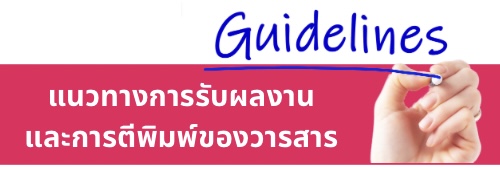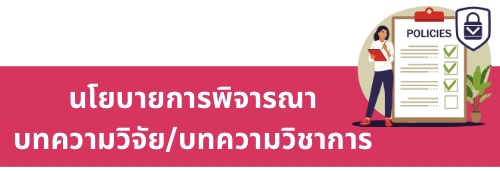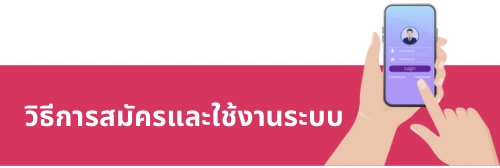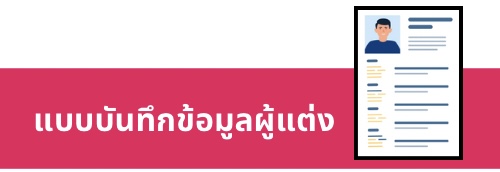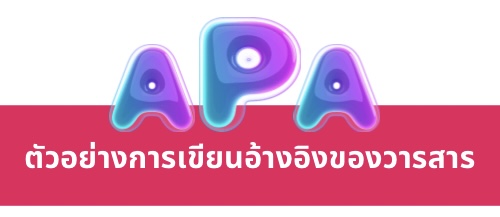ประสิทธิผลของโปรแกรมเสริมสร้างทักษะการกำกับตนเองโดยการเยี่ยมบ้านทางไกลสำหรับผู้ป่วยโรคเบาหวานชนิดที่ 2 ที่ควบคุมโรคไม่ได้ในอำเภอแก้งคร้อ จังหวัดชัยภูมิ
คำสำคัญ:
การกำกับตนเอง, พฤติกรรมการควบคุมโรค, การเยี่ยมบ้านทางไกล, โรคเบาหวานบทคัดย่อ
การวิจัยกึ่งทดลองแบบสองกลุ่มวัดก่อนและหลังการทดลองนี้มีวัตถุประสงค์เพื่อศึกษาผลของโปรแกรมเสริมสร้างทักษะการกำกับตนเองโดยการเยี่ยมบ้านทางไกลต่อการรับรู้ความสามารถของตนเองในการควบคุมโรคเบาหวาน พฤติกรรมการควบคุมโรคเบาหวาน และระดับน้ำตาลในเลือดของผู้ป่วยโรคเบาหวานชนิดที่ 2 ที่ควบคุมโรคไม่ได้ ตัวอย่าง คือ ผู้ป่วยโรคเบาหวานชนิดที่ 2 ที่ควบคุมโรคไม่ได้ มีระดับน้ำตาลในเลือดอยู่ในช่วง 126 - 180 มิลลิกรัมต่อเดซิลิตร อาศัยในอำเภอแก้งคร้อ จังหวัดชัยภูมิ และได้รับการสุ่มตัวอย่างแบบง่าย เป็นกลุ่มทดลองและกลุ่มเปรียบเทียบ กลุ่มละ 32 คน โดยจับคู่ อายุ ระยะเวลาที่เป็นโรคเบาหวาน ระดับน้ำตาลในเลือด และน้ำหนัก เครื่องมือการวิจัย ประกอบด้วย โปรแกรมเสริมสร้างทักษะการกำกับตนเองโดยการเยี่ยมบ้านทางไกลสำหรับผู้ป่วยโรคเบาหวานชนิดที่ 2 ที่ควบคุมโรคไม่ได้ ประยุกต์มาจากทฤษฎีการควบคุมตนเองของแบนดูราใช้ในการพัฒนาทักษะการสังเกตตนเอง การตัดสินใจ และการแสดงปฏิกิริยาต่อตนเอง กิจกรรมในโปรแกรม ประกอบด้วย การอบรมเชิงปฏิบัติการและการเยี่ยมบ้านทางไกลผ่านวิดีโอคอล มีระยะเวลา 10 สัปดาห์ คู่มือและอุปกรณ์เสริมสร้างทักษะการกำกับตนเองในการควบคุมโรคเบาหวาน แบบสอบถามการรับรู้ความสามารถของตนเอง และแบบสอบถามพฤติกรรมการควบคุมโรคเบาหวาน มีค่าดัชนีความตรงเชิงเนื้อหา เท่ากับ .99 ทั้งสองส่วน และมีค่าความเที่ยงจากสัมประสิทธิ์แอลฟาของครอนบาคเท่ากับ .90 และ .91 ตามลำดับ วิเคราะห์ข้อมูลโดยใช้สถิติเชิงพรรณนาและสถิติทดสอบที
ผลการวิจัยพบว่า หลังการเข้าร่วมโปรแกรม กลุ่มทดลองมีการรับรู้ความสามารถของตนเอง และพฤติกรรมการควบคุมโรคเบาหวาน ดีกว่าก่อนเข้าร่วมโปรแกรมและดีกว่ากลุ่มเปรียบเทียบ (t = 4.634, p = .001 และ t = 5.298, p = .001) และระดับน้ำตาลในเลือดของกลุ่มทดลองมีค่าเฉลี่ยน้อยกว่าก่อนเข้าร่วมโปรแกรมและน้อยกว่ากลุ่มเปรียบเทียบ (t = -7.199, p = .001) ดังนั้น แสดงให้เห็นว่าพยาบาลควรนำโปรแกรมนี้ ไปใช้ในการดูแลผู้ป่วยโรคเบาหวานชนิดที่ 2 ที่ควบคุมโรคไม่ได้ เพื่อป้องกันภาวะแทรกซ้อนที่อาจเกิดขึ้น
Downloads
เอกสารอ้างอิง
Bandura, A. (1991). Social cognitive theory of self-regulation. Organizational Behavior and Human Decision Processes, 50, 248-287.
Hayeepachi, N., & Pouyfung, P. (2019). Effective factors associated with controlling blood sugar among diabetes mellitus type 2 patients on follow-up at medical division, Chiang Rai municipality. Journal of Nursing, Public Health, and Education, 20(3), 83-94.
Jamjumroon, P., & Phatisena, T. (2017). Using the 7 colors diabetes mellitus self- awareness evaluation project in preventing and controlling diabetes in subdistrict health promotion hospitals in Nakhon Ratchasima. Ratchaphruek Journal, 15(2), 125-134.
Kadkul, S., Tamdee, D., Puntavong, K., Prommetjit, T., Luangyo, U., & Kongkaew, P. (2019). Development of life style modification promoting program toward blood sugar level among type 2 diabetes mellitus patients. Journal of Health Sciences Scholarship, 6(1), 57-69.
Klongdee, K., Benjakul, S., Kengganpanich, M., & Kengganpanich, T. (2019). Effects of the smart diet program applying the concept of self-regulation for diabetes control in type 2 diabetic patients in hospital for tropical diseases. Ramathibodi Nursing Journal, 25(3), 326-339.
Ontha, R., Moolsart, S., & Pitchayapinyo, P. (2017). The development of a home visit model based on participation between professional nurses and village health volunteers for type II diabetes. Journal of Nursing and Health Care, 34(4), 19-27.
Panuthai, S., Tachaudomdach, C., Srirat, C., & Theeraumpon, N. (2019). Development of “Kratib Kao” for controlling food consumption in persons with diabetes. Nursing Journal, 46(3), 94-105.
Panyalert, S. (2017). Self-regulation to promote dietary and exercise behaviors of type 2 diabetic patient of Ban-Nongchardo subdistrict health promotion hospital (Master of public health program, health management). Rajabhat Rajanagarindra University, Suphanburi.
Phuinuan, N., Krungkripetch, N., & Rattanagreethakul, S. (2018). Effects of self-regulation program of exercise with retro-line dancing on blood sugar level and physical fitness of high risk persons with type 2 diabetes mellitus. The Journal of Faculty of Nursing Burapha University, 26(3), 42-51.
Poorat, J., Pichayapinyo, P., & Lagampan, S. (2020). Effects of self-regulation program on glycemic control in patients with uncontrolled type 2 diabetes. Kuakarun Journal of Nursing, 27(1), 20-33.
Prompahaku, R., Wirojratana, V., Wattakritkraileart, D., & Krainuwat, K. (2020). The effect of self-regulation program on dietary behavior among older adults with uncontrolled type 2 diabetes. Nursing Science Journal of Thailand, 38(2), 32-45.
Saenrak, N., Juwa, S., & Srisookkum, T. (2020). Health literacy on self-care among patients with diabetes mellitus in Mae Ka subdistrict, Phayao province. Academic Journal of Community Public Health, 6(3), 174-184.
Saentecha, P., & Lamluk, P. (2020). The effectiveness of a program for health literacy development in the patients with type 2 diabetes. Thai Journal of Health Education, 43(2), 150-164.
Sangsawang, D., Palitnonkert, A., & Ngamkham, N. (2018). Factors affecting behaviors to reduce blood sugar levels of diabetic patients In Bangpoomai Tambon health promoting hospital, Samutprakarn province. Valaya Alongkorn Review, 8(1), 103-117.
Sarin, S., Moolsart, S., & Chailimpamontree, W. (2019). The effectiveness of a health literacy development program in patients with type 2 diabetes risking to chronic kidney disease. Nursing Journal of the Ministry of Public Health, 86-101.
Suwattanakul, T. (2018). Factors related to blood sugar control among diabetes mellitus type 2 patients. Journal of Health Systems Research, 12(3), 515-522.
Techaboonya, R., Moolsart, S., & Tipkanjanaraykha, K.. (2021). The effectiveness of a health literacy development program for patients with type 2 diabetes at risk of chronic kidney disease. Journal of Nursing and Health Research, 37(2), 50-62.
Tavsanli, N., Karadakovan, A., & Saygili, F. (2013). The use of videophone technology (telenursing) in the glycaemic control of diabetic patients: a randomized controlled trial. Journal of Diabetes Research & Clinical Metabolism, 2(1), 1. http://dx.doi.org/10.7243/2050-0866-2-1
World Health Organization. (2017). Classification of diabetes mellitus 2017.Switzerland: World Health Organization.

ดาวน์โหลด
เผยแพร่แล้ว
รูปแบบการอ้างอิง
ฉบับ
ประเภทบทความ
สัญญาอนุญาต
ลิขสิทธิ์ (c) 2022 วารสารพยาบาลตำรวจ

อนุญาตภายใต้เงื่อนไข Creative Commons Attribution-NonCommercial-NoDerivatives 4.0 International License.
ผลงานที่ได้ตีพิมพ์แล้วจะเป็นลิขสิทธิ์ของวารสารพยาบาลตำรวจ

